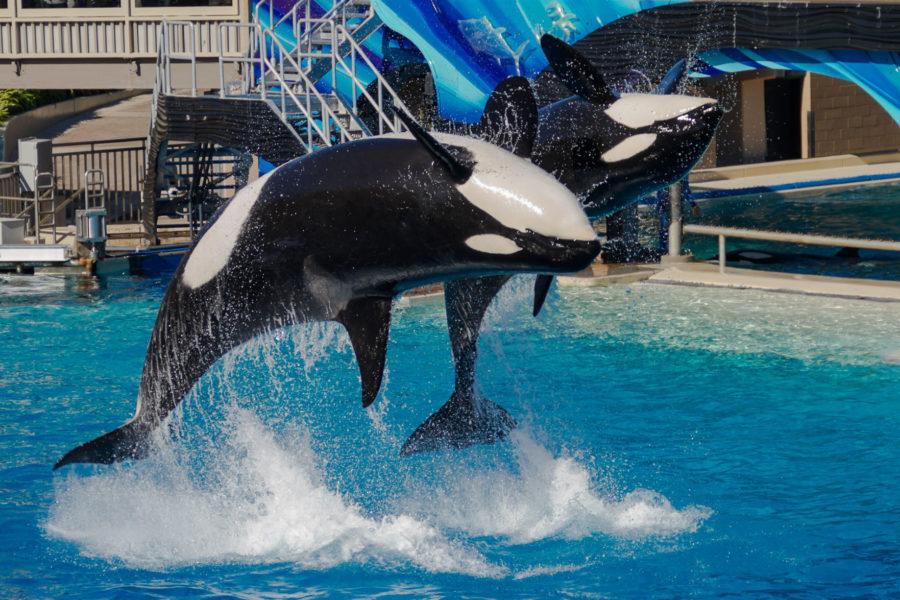Orcas still need your help, even when SeaWorld is out of the headlines
The California Captive Orca Welfare and Safety Act that would have prevented orca captivity will not be reintroduced in 2015.
February 3, 2015
Last year the “California Captive Orca Welfare and Safety Act”, which would eventually put an end to orca captivity, was introduced by Assemblyman Richard Bloom. After much opposition from SeaWorld, and other institutions threatened by the new legislation, the bill was then delayed pending further studies and scientific evidence.
The fact that there is an outstanding amount of evidence confirming the consequences of captivity, it is clear that the reason behind the delay has more to do with the political interests affected by the bill than the overall welfare of the orcas.
It was announced earlier this month that the bill will not be reintroduced in 2015.
According to The Dodo, an animal rights activist, a large reason for further delay on the legislation is Assembly Speaker Toni Atkins. While Atkins claims to have no opinion on the bill, there is no doubt that she is a supporter of SeaWorld considering she spoke at the park’s 50th anniversary. With SeaWorld San Diego falling within Atkin’s District, Bloom has decided not to push the bill considering the political obstacles present.
The reason the bill was initially delayed back in April 2014 is nothing more than SeaWorld successfully stalling their downfall. The bill, AB 2140, “makes it unlawful to hold in captivity, or use, an orca for performance or entertainment purposes, or to capture, import, export, or breed an orca in captivity.” If passed, the bill would have detrimental consequences on SeaWorld Enterprises. SeaWorld makes a good portion of its profit through its unethical captive breeding program as well as its exploitation of orcas as circus clowns. If this bill passes, SeaWorld would be forced to let go of the killer whale shows and come up with an entirely new business model. The fact that SeaWorld is unwilling to change its ways, even when faced with public opposition and countless obstacles, proves that the company is incapable of surviving without its “Shamu”.
An analysis of the AB 2140 bill that was sent to hearing last April shows that those in opposition include the California Association of Zoos and Aquariums, the California Hotel and Lodging Association and the California Travel Association. It doesn’t come as a surprise that a majority of those opposing the “California Captive Orca Welfare and Safety Act” are institutions that gain profit through SeaWorld’s imprisonment and exploitation of orcas. This goes to show that the main concern isn’t the welfare of the animals, as SeaWorld so publicly insists, but the pretty penny that is to be gained or lost.
Despite the current delay, there are many advocates of the bill including the Whale and Dolphin Conservation, the Humane Society of the US, the Animal Welfare Institute and other organizations who aren’t concerned with profit but rather the well-being of these highly intelligent creatures. The dramatic increase in public opposition of orca captivity is mainly in response the film “Blackfish”. “Blackfish” is a documentary that follows the story of Tilikum, a 22-foot-long orca bull who killed three people including SeaWorld trainer, Dawn Brancheau.
While SeaWorld continuously denies the accusations made by the film, referring to it as propaganda, there is no denying the scientific evidence that proves captivity is detrimental to an orca’s well-being. SeaWorld can stall all its wants; however, the business is still drowning.





























































































































